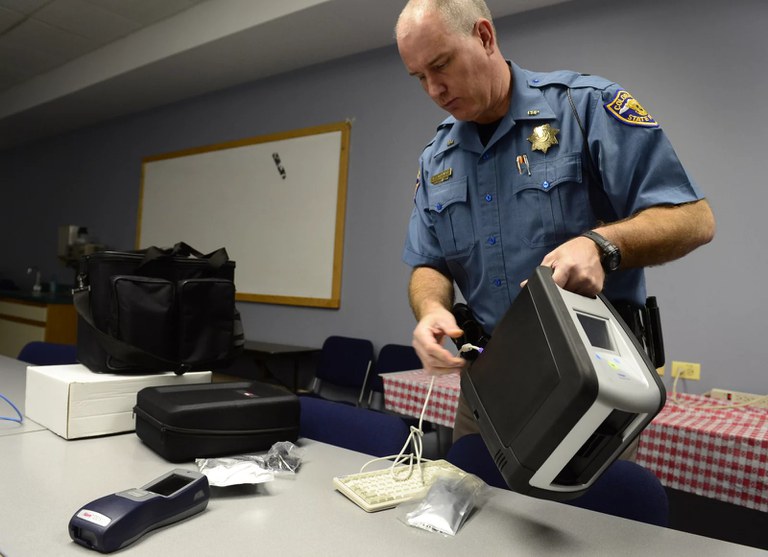Driving while high is hard to detect. States are racing to find a good tool (NPR)
Shift into Safe News
Over the last year, a group of officers with the Minnesota State Patrol carried a new piece of equipment in their squad cars. It looked like a Keurig machine, only this device doesn't make coffee; it analyzes saliva for THC — the chemical in marijuana that makes people high.
The machines were part of a pilot program that ended earlier this year, and the state patrol is preparing its results for state lawmakers. Minnesota is one of several states where police have tried this tool. They're doing so in response to changing behaviors: Most Americans now live in a state where marijuana is legal, more people are using it, and millions are doing so before driving.
Every state has a law that prohibits driving under the influence of drugs in some way, whether it be setting a permissible limit for legal drugs or not allowing any amount, but marijuana is difficult to regulate, and states are grappling with how to prevent people from driving under the influence.
"Essentially we've let the horse out of the barn," says Pam Shadel Fischer, senior director of external engagement with the Governors Highway Safety Association. "We need to make sure that we have things in place to protect others in the event that someone chooses to consume cannabis and get behind the wheel and be impaired."
Studies show THC can impair driving. It slows down driving speeds and reaction times and makes people swerve. Yet that varies widely by a person's tolerance to the drug, and the data is unclear on how big a problem driving while high actually is. In Colorado, for instance, fatal car crashes where a driver had THC in their blood went up after legalization. But it's difficult to determine whether a person was actively high at the time they crashed.

"When it comes to alcohol, the breath alcohol level is correlated very strongly with your blood alcohol level, which is correlated very strongly with your brain alcohol level," says Cinnamon Bidwell, an associate professor of psychology and neuroscience at the University of Colorado Boulder.
In other words, an alcohol breathalyzer is a good stand-in for how drunk and impaired a person is, but THC can stay in a person's system for hours, or even days, after they are no longer high.
"Can we detect THC accurately and reliably? The answer is yes. We can detect it in saliva. We can detect it in blood. We're working on reliable ways to detect it in breath," Bidwell says. "But what does that mean? And is there a level that means somebody recently used or that somebody is actively impaired? The data isn't there yet."
Without that, she says states risk over-punishing people who do use but don't drive while high.
Researchers, private companies and state governments are racing to find a tool that detects marijuana impairment with the ease and reliability of the alcohol breathalyzer.
Learn more about the race to find a tool that detects cannabis impairment here.
